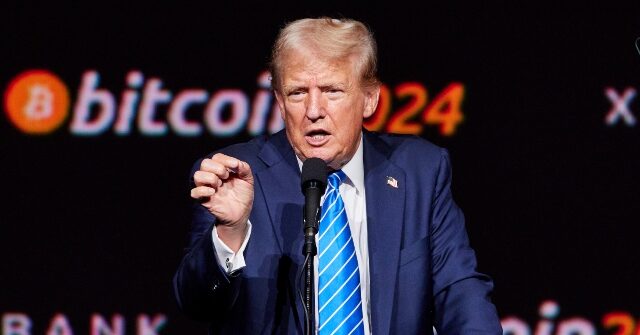The cryptocurrency community has celebrated a significant political triumph with the recent reelection of Donald Trump, following extensive financial support amounting to over $200 million directed towards various political campaigns and action committees. This formidable financial backing has positioned the cryptocurrency sector as a powerful influence in the 2024 U.S. elections, signaling its emerging status in American politics. Notable contributors from this industry include major figures and organizations such as Coinbase, the Winklevoss twins, and Jesse Powell from Kraken. Their concerted efforts to mobilize resources have rendered the cryptocurrency sector the highest political spending industry in the country, effectively illustrating its growing prowess in shaping electoral outcomes.
Central to the success of the crypto industry in this political arena was the Fairshake PAC, which played a pivotal role as the key vehicle for campaign contributions. Fairshake PAC, bolstered by $75 million from Coinbase, engaged aggressively in backing suitable candidates, ultimately distributing a total of $135 million to support 56 electoral campaigns. Remarkably, 47 of these candidates won their races, underscoring the effectiveness of the PAC’s strategic investments. The PAC’s primary focus was on defeating established political figures who posed a threat to the crypto ecosystem, notably Sen. Sherrod Brown from Ohio. The senator’s calls for hearings on the potential misuse of cryptocurrencies prompted the industry to rally support for his opponent, Bernie Moreno, who received $40 million in backing from the crypto community and consequently succeeded in the election.
The unwavering support of Donald Trump further fortified the cryptocurrency industry’s political operation. Despite his earlier reservations about Bitcoin, Trump’s campaign took a markedly pro-crypto stance, promising to transform the U.S. into the “crypto capital of the world.” He committed to initiatives such as creating a national Bitcoin stockpile and replacing the current SEC Chairman Gary Gensler with a more crypto-friendly regulator. This shift in Trump’s posture has energized the crypto community, providing a significant ally in their political pursuits. His promises indicated an understanding of the potential for Bitcoin and other digital currencies to flourish under supportive regulatory frameworks, aligning the industry’s goals with his plans for economic growth.
The landscape of cryptocurrency regulation has been fraught with challenges, prompting the industry to engage in aggressive lobbying efforts. These measures stemmed from concerns over the Securities and Exchange Commission (SEC)’s legal actions against several prominent crypto exchanges, which threatened the viability of the highly lucrative crypto trading business in the United States. This environment galvanized key industry leaders like Coinbase CEO Brian Armstrong, who advocated for increased political spending to match the influential lobbying efforts of established sectors such as Wall Street and the oil and gas industries. Armstrong framed the stakes as “existential,” highlighting the necessity for strong political representation and advocacy to safeguard the future of cryptocurrency in the nation.
The staggering financial contributions and lobbying activities underscore the cryptocurrency sector’s determination to shape both policy and opinion in its favor. By channeling vast resources into political campaigns and proactive lobbying strategies, the industry has positioned itself as an influential player equipped to navigate the complexities of regulation and governance. This strategy reflects a broader recognition within the cryptocurrency community of the importance of political leverage in light of potential threats to the industry. The ability to back political figures who are sympathetic to crypto interests can reshape the regulatory landscape in ways that promote innovation and protect the interests of investors and businesses within the digital asset space.
As the cryptocurrency industry continues to evolve, its relationship with key political figures and agencies will be critical in defining its trajectory. The successful reelection of Donald Trump, combined with substantial financial backing for pro-crypto candidates, has established a new paradigm for political engagement within this sector. The coming years promise to be pivotal for cryptocurrency in the U.S., as the industry seeks to take advantage of its newfound political clout and influence. Moreover, the actions taken now by these stakeholders may lay the groundwork for long-lasting changes in how cryptocurrencies are regulated, traded, and perceived in mainstream finance, potentially emboldening further growth and development within this dynamic market.

